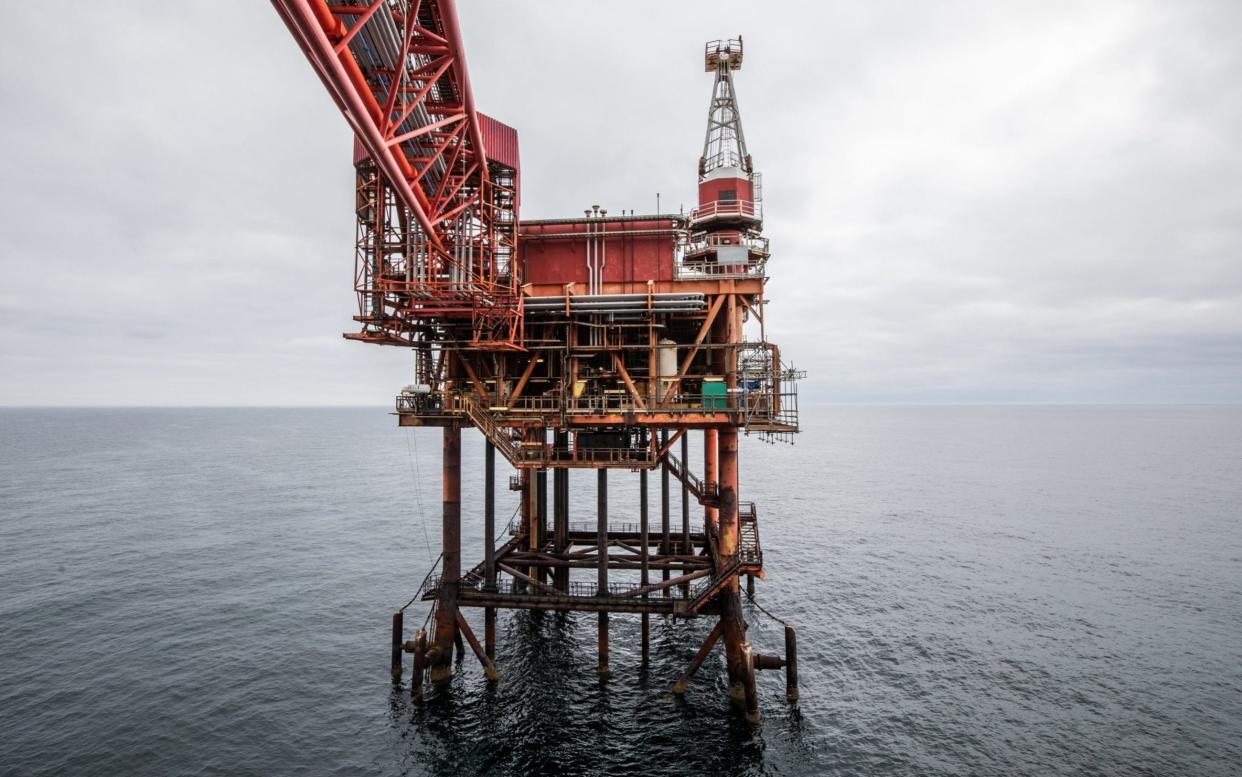Call to reopen North Sea gas storage sites

The Government’s infrastructure tsar has warned that Britain’s energy resilience is under threat as he called on ministers to consider reopening old gas storage facilities.
Sir John Armitt, chairman of the National Infrastructure Commission, said the recent energy crisis “does challenge our resilience” after a surge in gas prices.
The UK’s most senior infrastructure adviser said a dearth of gas storage in the UK could be tackled by supporting the private sector reopening of Centrica’s closed Rough site off the Yorkshire coast.
Sir John told The Telegraph: “It is a bit stark isn’t it when you see that our storage capacity is about 2pc of our demand and other places in Europe have got more like 20pc to 30pc storage capacity?”
The UK still relies on gas for almost 40pc of its electricity supply with the energy crisis stoking fears of power outages this winter. Household energy bills are set to rocket after gas prices soared as Russia is accused of restricting supply to secure approval of the Nord Stream 2 pipeline.
The industry warned that the closure of Rough, Britain’s largest natural gas storage site, in 2017 made the UK more dependent on imports and vulnerable to price swings. It made up more than 70pc of the UK’s already low gas storage capacity.
Asked if the recent gas crisis revealed the UK does not have enough energy resilience, Sir John said: “Yes, I think it does challenge our resilience.
"We recognise we’ve got to create more flexibility in our gas market by having more storage. Now how you do that, whether you look at reopening Rough ... [the Government would] probably then have to give support in some form to the private sector to encourage them to reopen Rough field.”
Sir John said the commission was beginning work on how to beef up the UK’s resilience as part of its second national structural assessment.
A government spokesman said: “This is not an issue of supply, but high international wholesale gas prices. As recent market activity has shown, domestic gas storage capacity has had little bearing on the price of gas.
“The UK benefits from access to gas reserves in British territorial waters and secure sources from reliable import partners, such as Norway.”
Questions over resilience this winter come as the energy system is set to be overhauled to help the Government meet its target of net zero carbon emissions by 2050.
The Government confirmed last week that it wants to decarbonise the power sector by 2035, cutting reliance on gas-fired power stations, although some are set to remain with emissions captured.
Power supplies are set to be stretched with the shut-down within the decade of most of the country’s ageing nuclear fleet, which provided about 16pc of the UK’s power last year.
The Government is in talks with French state-power giant EDF over a planned new station, Sizewell C in Suffolk, to follow Hinkley Point C which EDF is building in Somerset with its Chinese partner CGN.
The Treasury has asked advisers on the Energy Working Group to decide whether nuclear power should be considered a “green” investment in the UK’s new taxonomy.
Nuclear is a stable source of low carbon power, but it does not necessarily meet “green” investment criteria due to factors such as nuclear waste, water usage, and remote but catastrophic risks of nuclear accident.
“Nuclear power – as a low-carbon technology – represents a crucial element of the government’s plans to reach net zero,” the Treasury said.
“The Energy Working Group is therefore considering evidence to support its inclusion in the Taxonomy, including the requirement to ensure that its activities meet the wider eligibility criteria to ‘do no significant harm’ to the other Taxonomy objectives.”
Members of the EWG include David Fletcher, deputy policy director at regulator Ofgem, and Dr Fiona Rayment, chief technology officer at the UK National Nuclear Laboratory.

